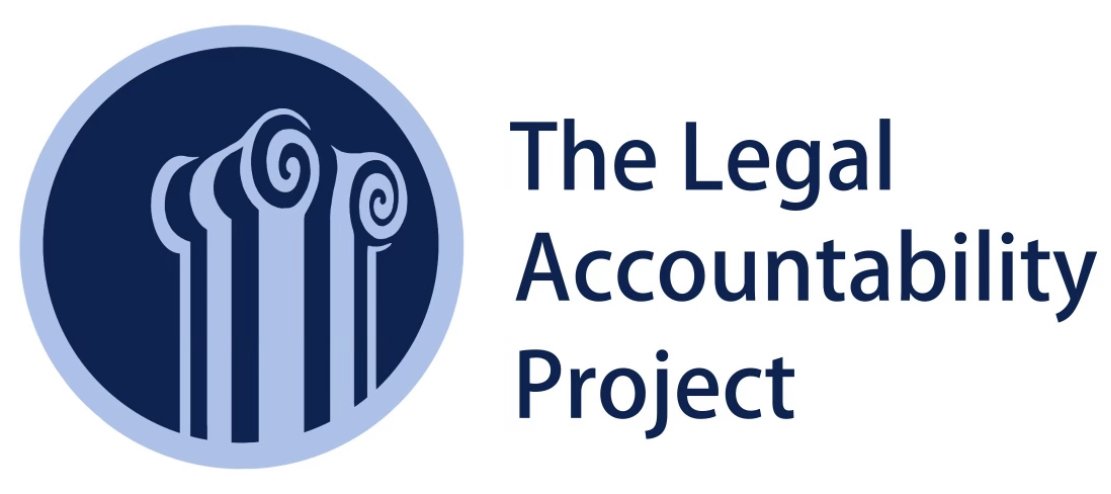Federal judge acknowledges 'abusive workplace' in court order (NPR)
LAP’s President and Founder Aliza Shatzman spoke with NPR about U.S. District Court Judge Lydia Kay Griggsby, who acknowledged creating an “abusive workplace,” according to a recently-released Fourth Circuit disciplinary order.
Newly released court records reveal misconduct inquiry into federal judge (NPR)
LAP’s President and Founder Aliza Shatzman spoke with NPR about former judge Mark Wolf, who allegedly retired in November 2025 to take a principled stand against executive branch overreach—but actually resigned amid a misconduct investigation to evade accountability.
Court Finds Probable Cause for Hostile Workplace by US Judge
LAP’s President and Founder Aliza Shatzman spoke with Bloomberg Law about a judicial misconduct investigation into a former district court judge within the First Circuit who left the bench in November 2025.
Second Circuit Judge Accused Of Bullying Her Law Clerks — Again
The judiciary has a harassment problem that no one cares to solve, LAP’s President and Founder Aliza Shatzman argues in Above the Law. Judge Sarah Merriam is just the latest in a long line of examples of judges who abuse their power by mistreating staff, yet most judicial misconduct never comes to light.
Advocacy group accuses US appeals court judge of mistreating law clerks (Reuters)
LAP’s President and Founder Aliza Shatzman spoke with Reuters about LAP’s first judicial misconduct complaint, filed against Second Circuit Judge Sarah Merriam.
Federal appeals court judge is accused of bullying her clerks (NPR)
LAP’s President and Founder Aliza Shatzman spoke with NPR’s Carrie Johnson about LAP’s first judicial misconduct complaint, filed against Second Circuit Judge Sarah Merriam.
Are Judicial Clerkships A Hazard, Or Is There A Clerkship for Everybody?
Given how many judges mistreat their clerks, choosing not to pay $50 to subscribe to LAP's Clerkships Database to inform yourself before clerking is basically consigning yourself to abuse, LAP’s President and Founder Aliza Shatzman argues in Above the Law.
Law Schools Are Lying To Students About Judicial Clerkships
What do you call it when law schools withhold negative information about judges from students and try to prevent them from accessing candid clerkship information beyond the school’s approved resources? Lying.
The Most Important Election No One’s Talking About
Pennsylvania’s Supreme Court election is the most important 2025 election no one outside Pennsylvania is talking about. Yet its outcome will have far-reaching implications for future elections, and for democracy itself.
Federal judges are above the law in the workplace: How a "Glassdoor for Judges" will help
The Legal Accountability Project created accountability through transparency: there's nothing imperious judges hate more than negative feedback they cannot see, dispute, or silence clerks from sharing through threats of retaliation, Aliza Shatzman writes in GovTrack.
Federal Judiciary Says ‘F.U.’ To Public Defender In A Win For … Justice?
Refusing to implement meaningful workplace reforms is part of a concerted effort by the federal judiciary to maintain the broken status quo and shield abusive judges from accountability, Aliza Shatzman argues in Above the Law.
Reassigning Judicial Law Clerks Is A Band-Aid Over A Bullet Hole
We cannot allow the federal judiciary to quietly reassign mistreated law clerks year after year while shielding judges from accountability and failing to solve systemic problems that necessitate clerk reassignments, Aliza Shatzman argues in Above the Law.
Creating Judicial Accountability Where Before There Was None
So, you want to clerk—how will you avoid judges who harass their clerks? LAP’s Clerkships Database is the answer, Aliza Shatzman writes in Above the Law.
Federal judges are, too often, ‘above the law.’ We can stop it.
The solutions to judicial lawlessness exist, if we’re tenacious enough to fight for them, LAP’s President and Founder Aliza Shatzman argues in The Philadelphia Inquirer.
Fixing The Clerkship System
LAP’s Clerkships Database is a “right now” solution: we’re not waiting on anyone to make the change we know is necessary, Aliza Shatzman argues in Above the Law as the second clerkship hiring cycle where applicants benefit from LAP’s Database, commences.
We Must Close the Loophole Helping Judges Evade Accountability
Congress must close the disturbing legal loophole in the judicial complaint process that allows federal judges to evade accountability for misconduct by stepping down, Aliza Shatzman argues in Bloomberg Law.
Federal Judiciary Employees Lack Confidence in Internal Processes and Rarely Report Misconduct
Congress cannot credibly espouse a commitment to the rule of law while refusing to ensure judges are subject to the law, Aliza Shatzman argues in Courier News.
The Judiciary Should Be Independent From Political Pressure, Not From The Law
There’s nothing more antithetical to the rule of law than the fact that judges are not subject to the laws they interpret.
Minnesota Federal Bankruptcy Judge To Resign Amid Misconduct Allegations
This is the biggest judicial accountability story since Joshua Kindred resigned less than a year ago, but the federal courts would prefer you not know about it.
‘Glassdoor For Judges’ Prepares To Celebrate 1-Year Anniversary Of Upending The Clerkship System
You'd be foolish to argue against transparency, just like you'd be foolish to bet against LAP. As LAP prepares to celebrate the one-year anniversary of our Clerkships Database launch, Aliza Shatzman reflects on how far LAP has come, and the incredible change we've created in such a short time.


